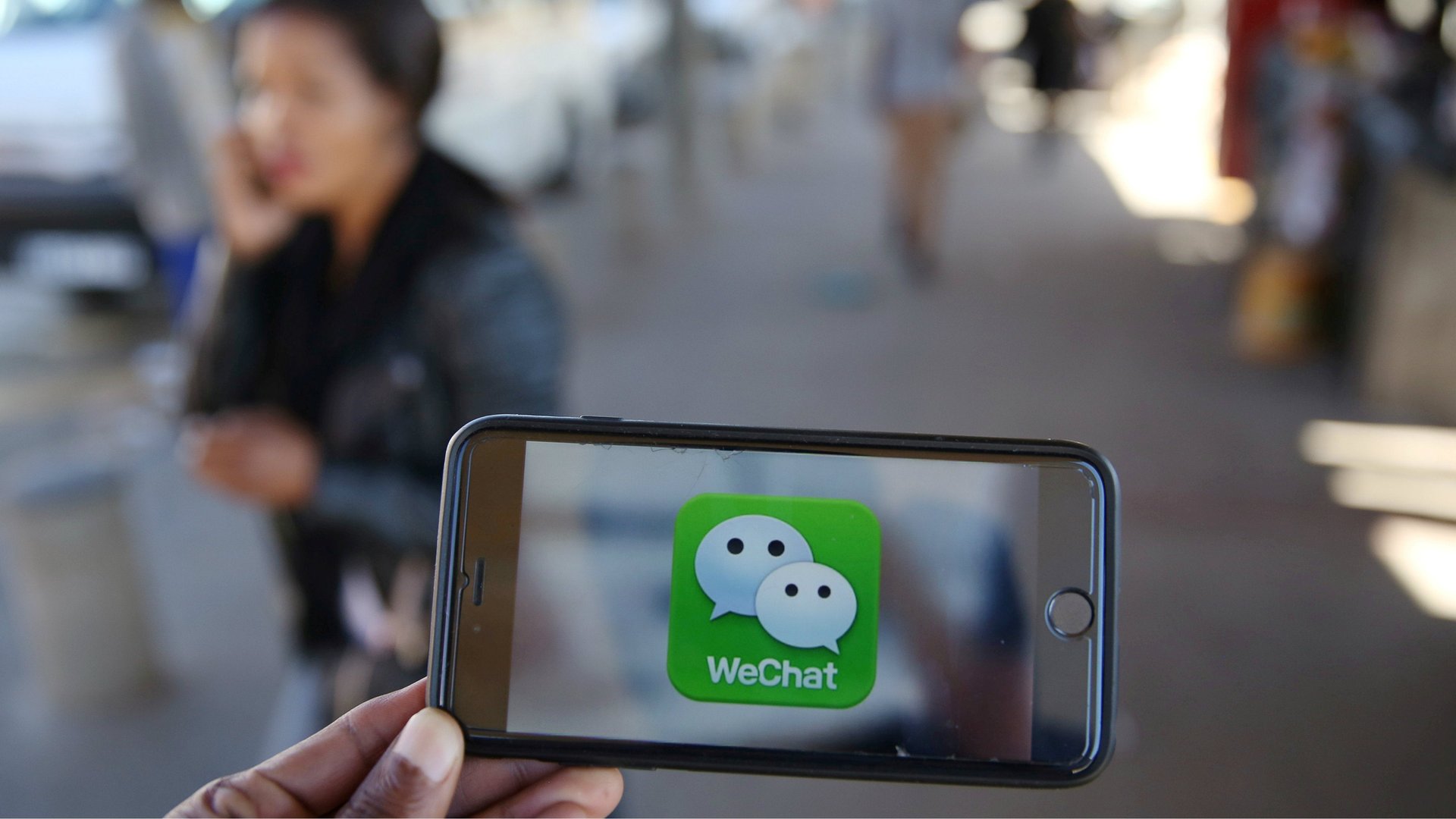China’s biggest social network just got the China treatment in Russia
For years, Chinese internet authorities have barred foreign tech companies from entering its market, or made it enormously difficult to operate, in the name of promoting “internet sovereignty.” Now it’s on the receiving end.


For years, Chinese internet authorities have barred foreign tech companies from entering its market, or made it enormously difficult to operate, in the name of promoting “internet sovereignty.” Now it’s on the receiving end.
On May 5, Russia’s internet regulator Roskomnadzor published a list of prohibited online services that included WeChat, the popular Chinese chat app. Some users in Russia reported they could no longer use the app as usual, according to Russian tech site VC.ru. An official on a Tencent microblog reportedly apologized to affected users.
In a statement to Quartz, Tencent said that as an entity involved in “online information distribution,” it was required to provide Russian authorities with information when requested. “We are in discussions with relevant authorities regarding the situation,” it said, without elaborating further.
A spokesperson for Roskomnadzor told AFP that the agency blocked WeChat because it did not provide its “contact details” to the register. However, the true cause of the block likely lies in a Russian law passed in 2014 requiring all foreign internet companies to store Russian user data on servers located inside Russia, a requirement China has also imposed.
To date, few major internet companies have complied with the requirement and have faced no consequences as a result. Google and Facebook remain unaffected by the law and continue to operate normally in Russia as they do in most other countries. But not every company has gotten off easy. In 2016 Russian authorities blocked access to LinkedIn, which at the time had 6 million users in the country. In March, Roskomnadzor told media that LinkedIn submitted a letter to the agency saying it had no intentions of storing domestic user data on domestic servers, which “confirmed its lack of interest in working with the Russian market.” It also tweeted out a message announcing LinkedIn’s “death” in Russia.
Since then, Russia has acted more aggressively against foreign internet companies operating in Russia. Early last week it published a notice announcing that several chat apps, including Blackberry Messenger and Japan’s Line, had been blocked.
The WeChat block in particular rings of irony, since China itself is known for imposing tough regulations on foreign internet companies, and enforcing them with ever more vigor. Facebook, Google, YouTube, and Twitter, which operate in Russia largely without issue, remain blocked in China primarily due to qualms about freedom of information. Over the past few years the Chinese government has also blocked Instagram, Snapchat, Flickr, Line, Dropbox, iCloud, Pinterest, and several established news media, like The New York Times.
In recent weeks, ahead of a major Communist party conference in the fall that will shape the future leadership, China has issued new requirements related to online news publishing and said it will exert more control over search engines.
Meanwhile, the Chinese government, much like Russia, has required foreign companies to keep local user data inside the country’s borders. For the most part, younger companies have obliged, perhaps wary of a swift strike against them if they resist. LinkedIn, Uber, and AirBnb have each committed to using domestic servers to store Chinese user data. Amid this, Chinese president Xi Jinping has justified the policies under the slogan “cyber sovereignty“—the notion that nation states should have the authority to govern the internet as they see fit, rather than respect it as a transnational highway for spreading information and commerce.
Of course, just because China and Russia share a similar philosophy about internet governance doesn’t mean that they will roll out the red carpet for each others’ internet companies. Governments that rally for an internet with borders (or “splinternet”) ought not be surprised or dismayed when their firms get shut out of the market, with or without good reason. With the WeChat block, China is merely getting a taste of its own medicine.